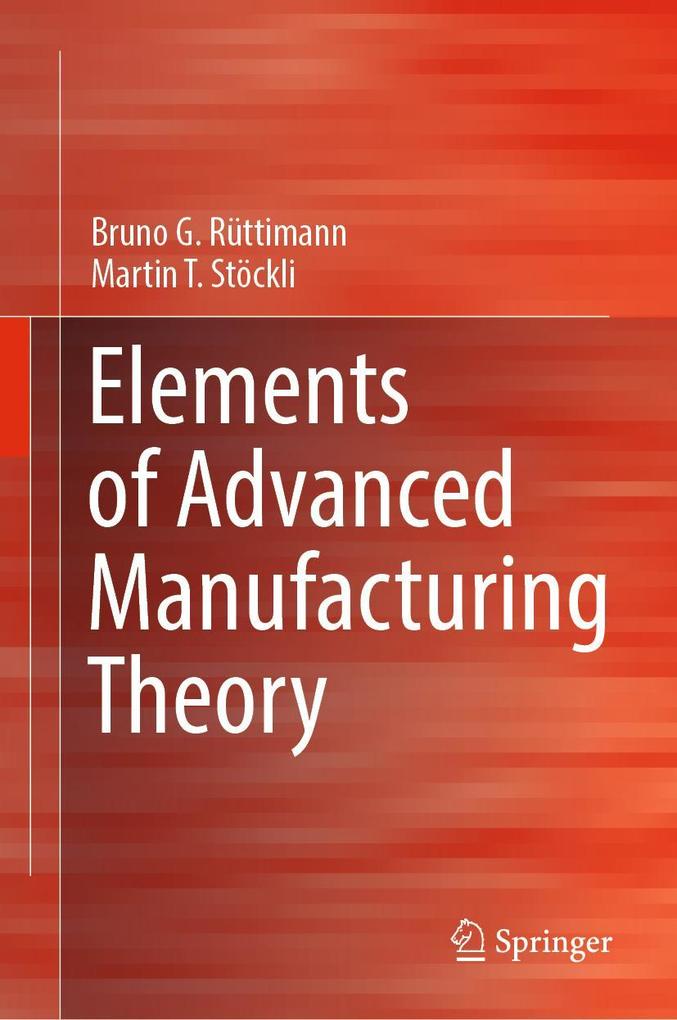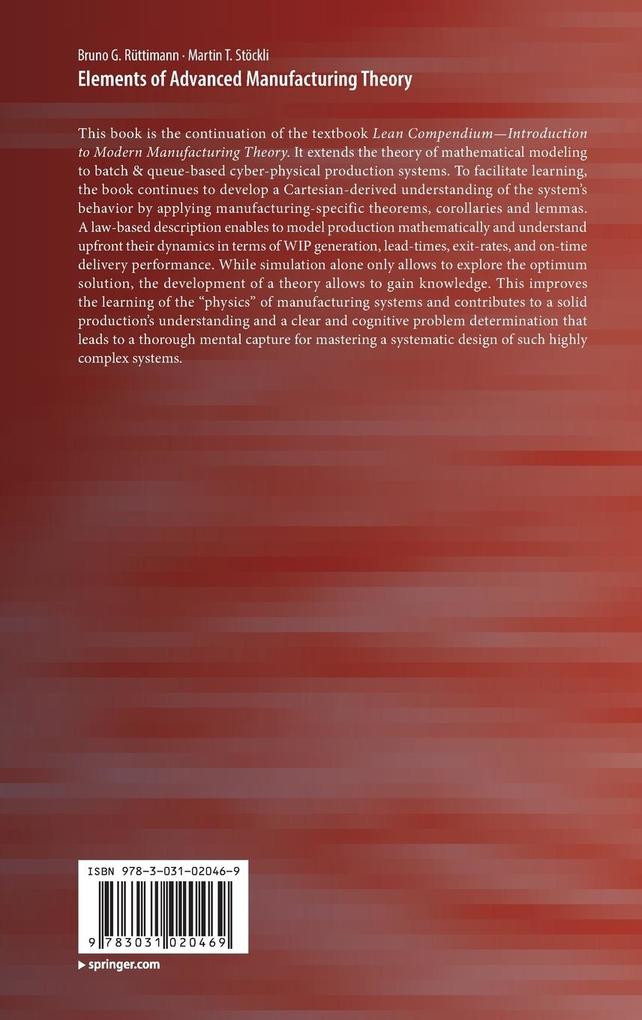
Zustellung: Do, 03.07. - Mo, 07.07.
Versand in 1-2 Wochen
VersandkostenfreiBestellen & in Filiale abholen:
This book is the continuation of the textbook Lean Compendium - Introduction to Modern Manufacturing Theory. It extends the theory of mathematical modeling to batch & queue-based cyber-physical production systems. To facilitate learning, the book continues to develop a Cartesian-derived understanding of the system's behavior by applying manufacturing-specific theorems, corollaries and lemmas. A law-based description enables to model production mathematically and understand upfront their dynamics in terms of WIP generation, lead-times, exit-rates, and on-time delivery performance. While simulation alone only allows to explore the optimum solution, the development of a theory allows to gain knowledge. This improves the learning of the "physics" of manufacturing systems and contributes to a solid production's understanding and a clear and cognitive problem determination that leads to a thorough mental capture for mastering a systematic design of such highly complex systems.
Inhaltsverzeichnis
Foreword. - Prologue. - Acknowledgements. - 1. The Need for Manufacturing Theory- 2. Basic Classification of Production Systems. - 3. The Central Importance of the Bottleneck. - 4. Elasticity, Lead-Time, On-Time Delivery. - 5. Understanding the Advantage of Lean Pull JIT Versus Push B&Q. - 6. Flexibility and the One-off Product Challenge of CPPS. - 7. Some Critical Considerations About Industry 4. 0. - Epilogue.
Produktdetails
Erscheinungsdatum
18. Juni 2022
Sprache
englisch
Auflage
1st edition 2022
Seitenanzahl
184
Autor/Autorin
Bruno G. Rüttimann, Martin T. Stöckli
Verlag/Hersteller
Produktart
gebunden
Abbildungen
XV, 168 p. 49 illus., 45 illus. in color.
Gewicht
448 g
Größe (L/B/H)
241/160/16 mm
ISBN
9783031020469
Entdecken Sie mehr
Bewertungen
0 Bewertungen
Es wurden noch keine Bewertungen abgegeben. Schreiben Sie die erste Bewertung zu "Elements of Advanced Manufacturing Theory" und helfen Sie damit anderen bei der Kaufentscheidung.










